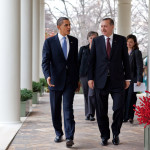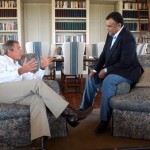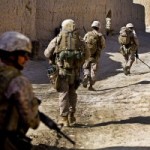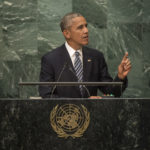Exclusive: The youthful new French President Macron is getting rave press reviews, with little attention to his clampdown on public liberty under the guise of fighting terrorism, reports Jonathan Marshall.
Tag: Al-Qaeda
How America Armed Terrorists in Syria
Trump Lets Saudis Off on 9/11 Evidence
Like his predecessors, President Trump made nice with the rich royals of Saudi Arabia, despite damning evidence that they have supported Islamic terrorists, including the 9/11 attackers, notes 9/11 widow Kristen Breitweiser.
The Bait-and-Switch ‘War on Terror’
Bill Maher’s Muddled Attacks on Islam
As an edgy comedian, Bill Maher prides himself on his “politically incorrect” religion-bashing, but his excessive attacks on Islam more aptly reflect a “politically correct” bigotry, as JP Sottile explains.
America Digs Its Own Afghan Grave
Death of the Syrian ‘Moderate’ Fantasy
How Clinton Defeat Derailed Syrian War
Hawkish think tanks had laid plans for escalating the U.S. “regime change” war in Syria after Hillary Clinton’s expected election, but a different result has forced them to repackage their scheme, says Gareth Porter.
The Never-ending ‘War on Terror’
Reasons to Risk Nuclear Annihilation
Exclusive: The latest neocon/liberal-hawk scheme is for the U.S. population to risk nuclear war to protect corrupt politicians in Ukraine and Al Qaeda terrorists in east Aleppo, two rather dubious reasons to end life on the planet, says Robert Parry.





